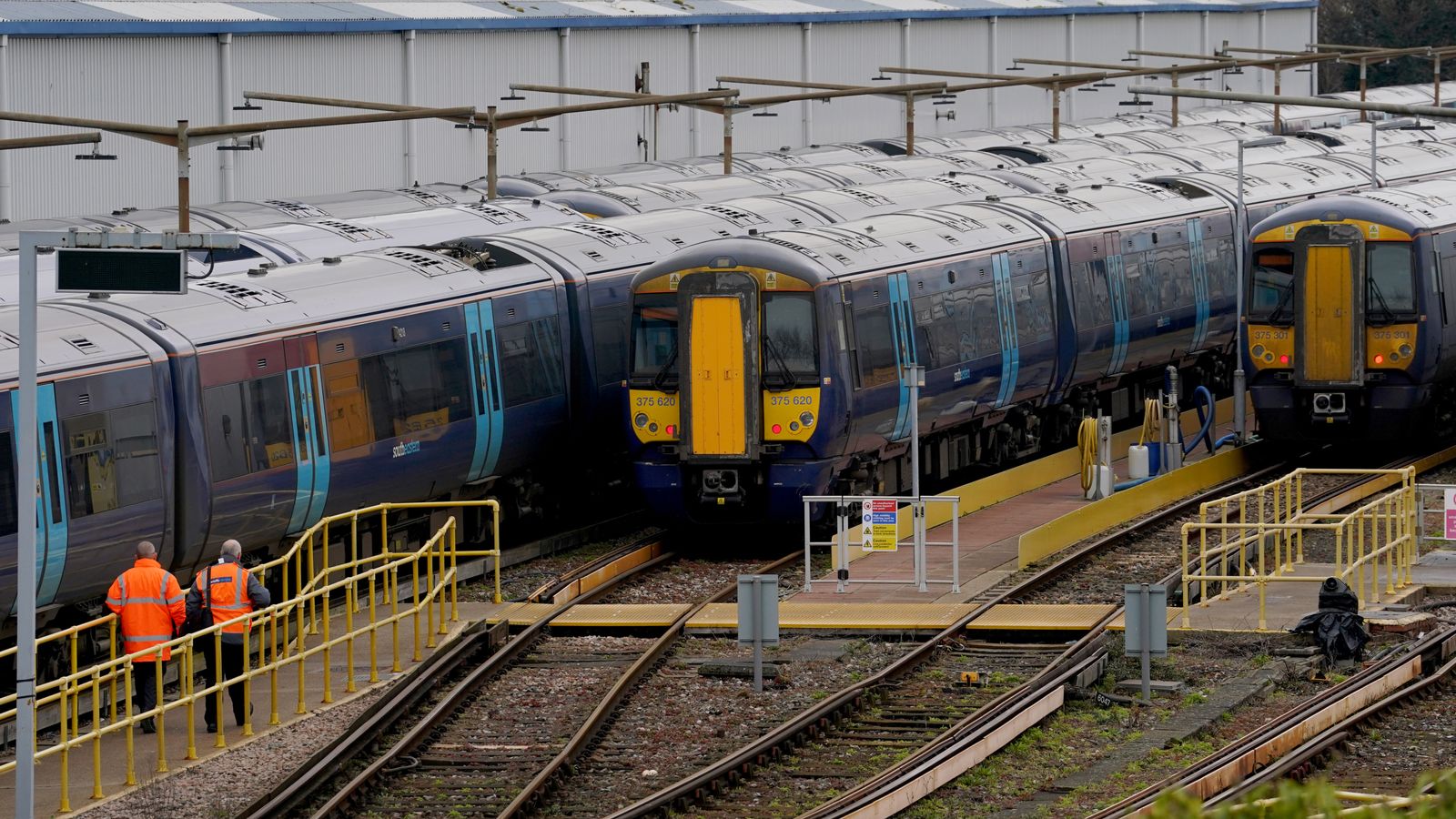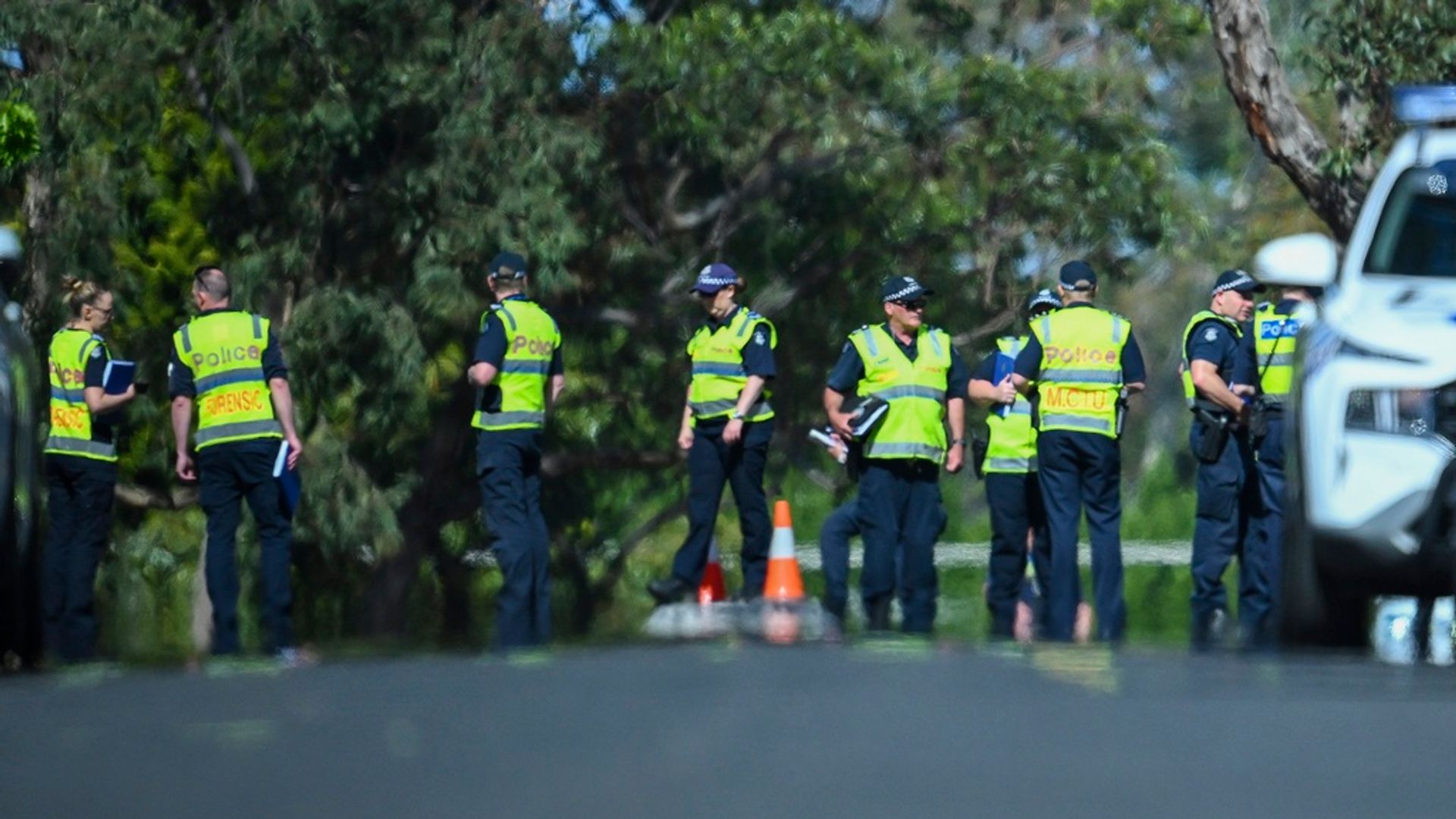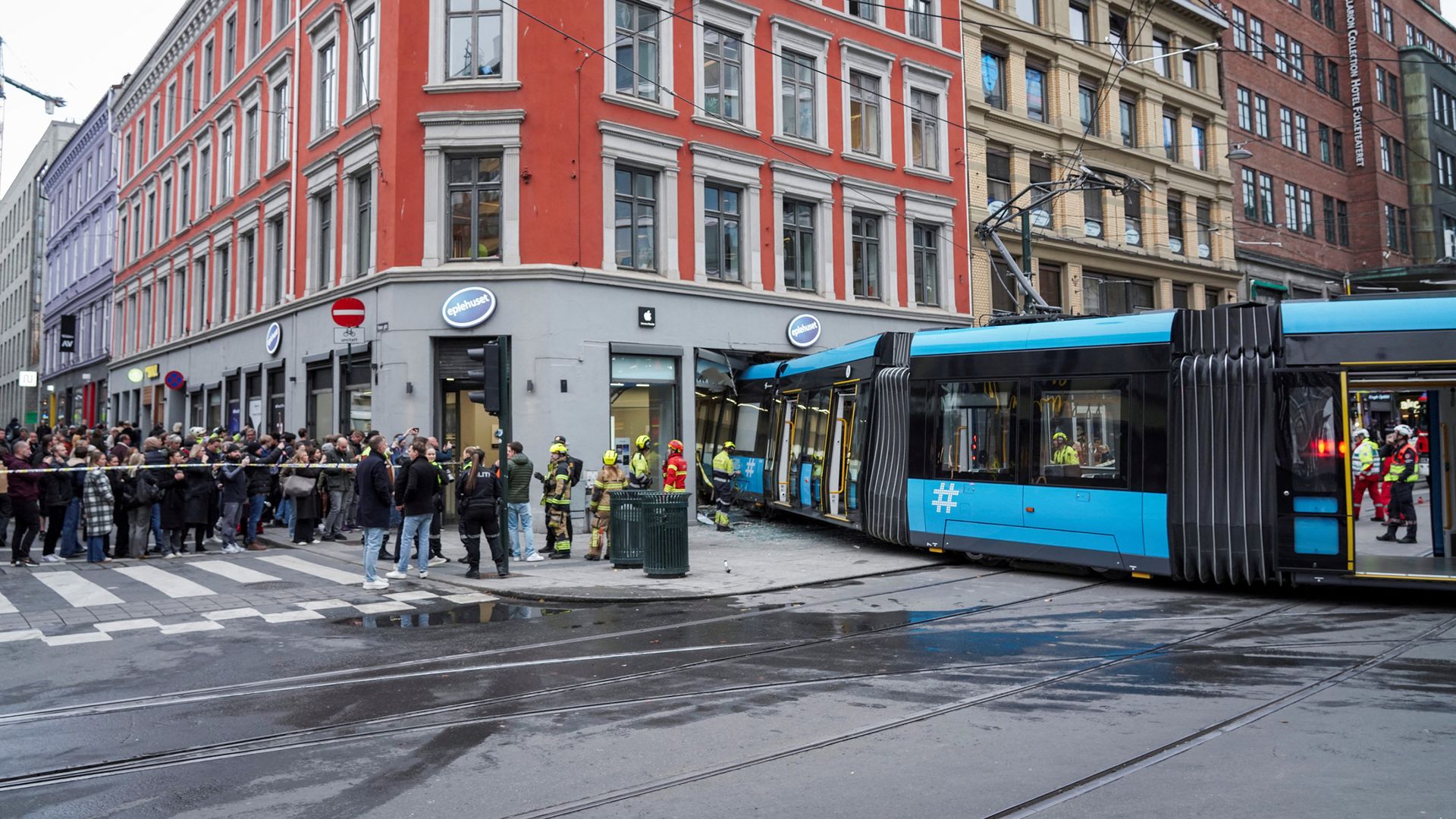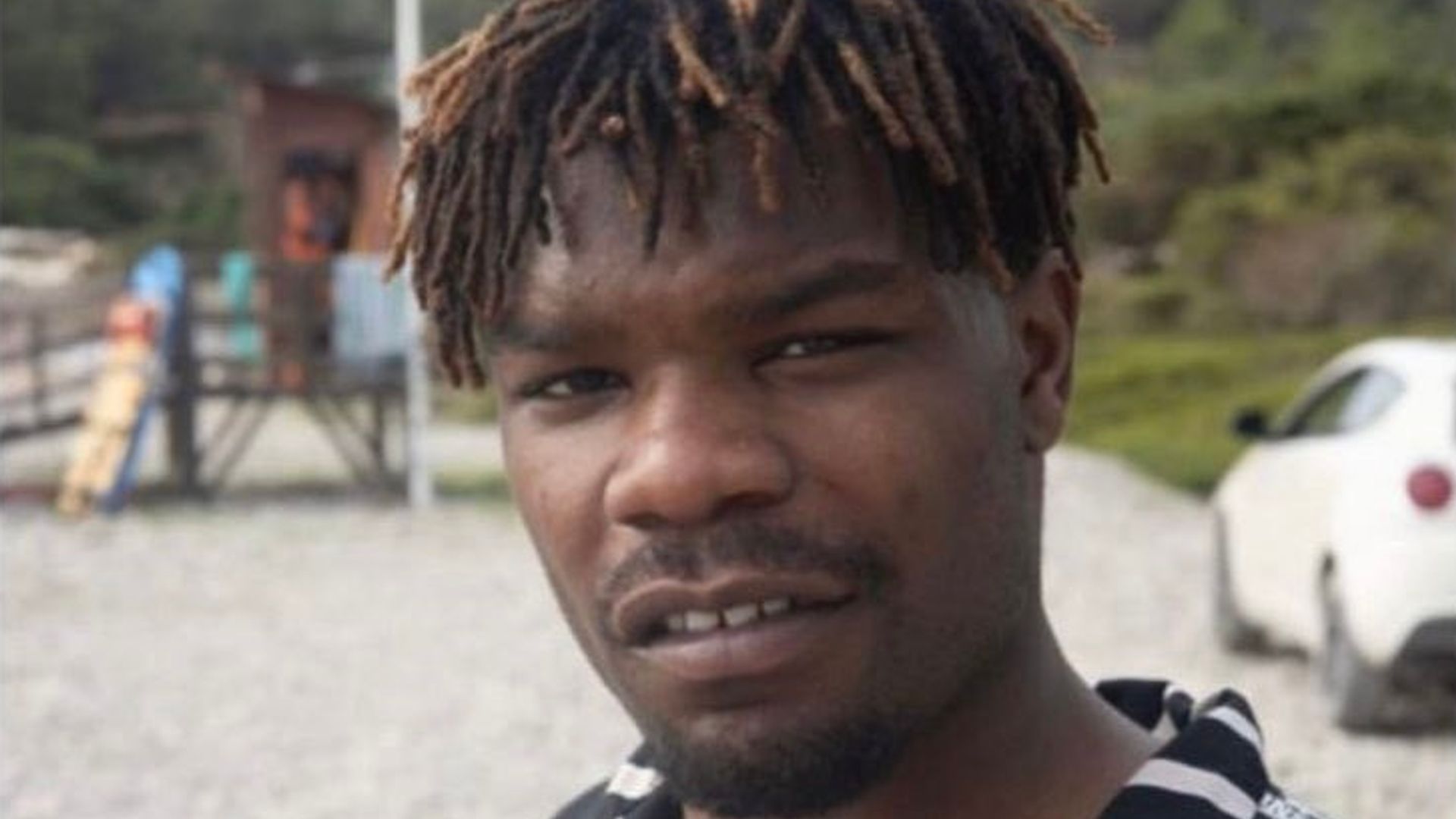Striking rail workers have vowed to continue walking out until the government “unblocks” their pay dispute on the second day in a row of cancellations.
There are 14 rail operators affected by strike action by the RMT union on Saturday – the day of the Eurovision finale in Liverpool – after a separate walkout by train drivers from ASLEF on Friday.
Both strikes have caused widespread cancellations and show no signs of stopping after the RMT rejected a 9% pay increase.
ASLEF, which was offered an 8% increase over two years, has strikes planned until 3 June – the day of the FA Cup Final.
After rejecting the most recent offer, RMT general secretary Mick Lynch called for a special summit of unions, train operators and the government in a letter to Transport Secretary Mark Harper.
He told Sky News rail bosses want unions to call off any remaining strikes before negotiating any further – but their industrial action is “solid” and “will be as long as this campaign goes on”.
“What they want us to do is call off the dispute and then go into another set of negotiations without the leverage on the table – and we simply can’t do that,” he said on Saturday. “You don’t disarm yourself half-way through a campaign.
“It’s up to the government to unblock this dispute because they are the ones who have the final say on what is proposed at the table.
“In their contracts with these companies they stipulate what the negotiating position is and what the offers are.”
Union did not put latest offer to its members
Paul Gentleman, spokesperson for Great Western Railway, whose members are on strike today, said he knows of RMT members happy with the latest offer – but the RMT has not given members a chance to vote on it.
Describing it as “disappointing” and the dispute as “toxic”, he told Sky News a separate summit is unnecessary as “existing methods” could “provide the solution”.
Labour’s shadow employment secretary Alison McGovern added that constant train strikes are hindering the UK’s economic recovery.
Read more:
Rail passengers and Eurovision fans face significant disruption in fresh strikes
Who is taking industrial action in 2023 and when?
But Mr Lynch said the union did not put the offer out for ballot because it did not keep up with the cost of living crisis and inflationary pressures.
“It’s not acceptable. It doesn’t meet the demands in the dispute,” he said.
Please use Chrome browser for a more accessible video player
It comes after the government was forced to bring the operator TransPennine Express under its control following a year of widespread delays and cancellations.
TransPennine, which was also on strike on Saturday – and covers the north of England and a small part of Scotland, has been badly affected by ASLEF driver strikes.
Mr Harper said his department had “played our part but ASLEF now need to play theirs” by calling off further strikes.
Be the first to get Breaking News
Install the Sky News app for free
Click to subscribe to the Sky News Daily wherever you get your podcasts
Merseyrail, which runs the trains out of Liverpool, was not on strike on Saturday, with Eurovision organisers insisting travel to the city for the final would not be disrupted.
But those not already in Liverpool for the final will be unable to get there if they were relying on connecting services run by: Avanti West Coast; c2c; Chiltern Railways; CrossCountry; East Midlands Railway; Gatwick Express; Great Northern; Great Western Railway; Greater Anglia; Heathrow Express; Island Line; LNER; London Northwestern Railway; Southeastern; Southern; Stansted Express; Thameslink; TransPennine Express; or West Midlands Railway.











